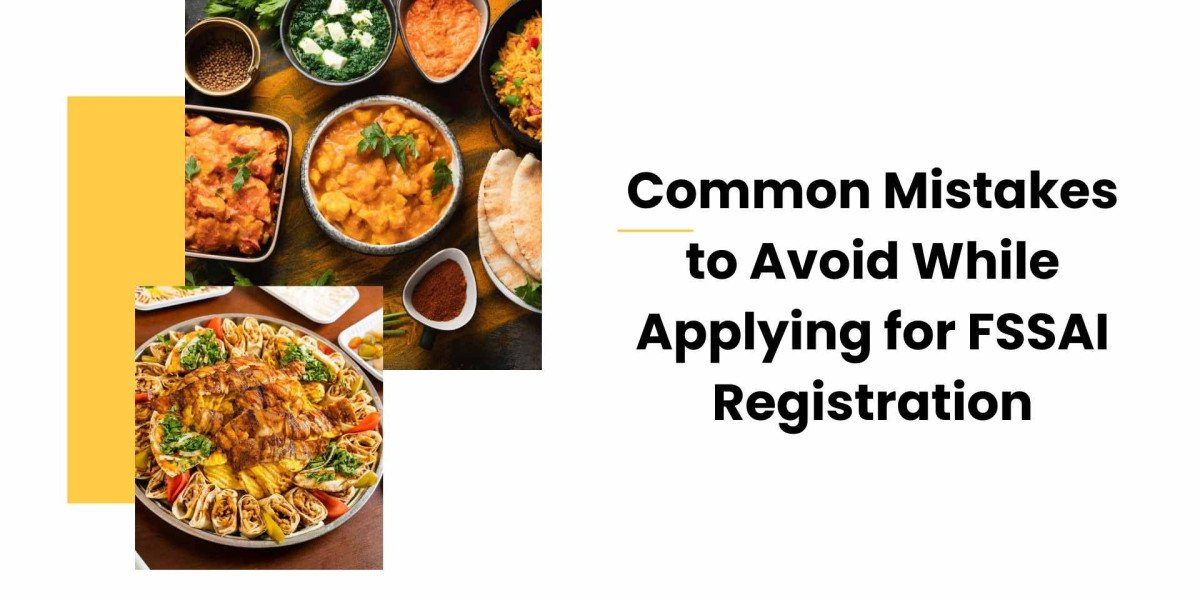Food Safety and Standards Authority of India (FSSAI) registration is a mandatory requirement for all food businesses operating in India. It ensures compliance with food safety regulations and enhances consumer trust. However, many applicants make common mistakes while applying for FSSAI Registration, leading to delays, rejections, or penalties. Understanding these errors can help streamline the registration process and avoid unnecessary complications.
1. Choosing the Wrong Type of Registration
One of the most common mistakes is selecting the incorrect category of FSSAI registration. FSSAI offers three types of registration/licenses:
Basic Registration (for businesses with an annual turnover of up to ₹12 lakh)
State License (for businesses with a turnover between ₹12 lakh and ₹20 crore)
Central License (for businesses with a turnover above ₹20 crore or operating in multiple states)
Many applicants mistakenly apply for the wrong category, leading to rejection or reapplication. It is crucial to assess your business turnover and nature before selecting the appropriate registration type.
2. Providing Incorrect or Incomplete Documents
FSSAI registration requires specific documentation, including:
Identity and address proof of the proprietor/partners/directors
Business address proof
Food safety management plan
List of food products being manufactured or sold
Submitting incorrect, incomplete, or misleading documents can result in application rejection. Always double-check the list of required documents and ensure they are accurate and up to date.
3. Inaccurate Business Details
Incorrect business details, such as the wrong address, contact information, or business type, can lead to unnecessary delays. Ensure that all business details match those provided in other legal documents (such as GST registration and business licenses) to prevent discrepancies.
4. Ignoring Food Category Classification
Applicants often overlook the importance of correctly specifying the food category they are dealing with. FSSAI requires businesses to mention the exact food products they manufacture, store, distribute, or sell. Providing vague or incorrect food categories can lead to rejection or future compliance issues.
5. Not Following Labeling and Packaging Guidelines
FSSAI has stringent regulations regarding food labeling and packaging. Failure to adhere to these guidelines can result in license rejection or penalties. Common labeling errors include:
Missing FSSAI logo and license number
Incorrect nutritional information
Absence of mandatory declarations such as "Vegetarian" or "Non-Vegetarian" symbols
Ensure your product labels comply with FSSAI norms before applying for registration.
6. Delayed Renewal of FSSAI License
FSSAI registration and licenses have validity periods ranging from 1 to 5 years, depending on the chosen duration. Many businesses fail to renew their licenses on time, resulting in penalties or operational disruptions. It is advisable to initiate the renewal process at least 30 days before expiry.
7. Lack of Knowledge About FSSAI Compliance
Merely obtaining an FSSAI registration is not enough; businesses must comply with food safety regulations continuously. Many applicants fail to understand their post-registration obligations, such as:
Regular food safety audits
Maintaining hygiene and sanitation standards
Proper record-keeping of raw materials and finished goods
Staying updated with FSSAI compliance requirements can prevent legal issues and ensure smooth business operations.
8. Not Seeking Professional Assistance
The FSSAI registration process can be complex, especially for first-time applicants. Many businesses make errors due to a lack of knowledge about legal and procedural requirements. Seeking professional assistance from legal consultants or FSSAI experts can simplify the process and reduce the risk of rejection.
9. Using an Expired or Invalid FSSAI License
Operating a food business with an expired or invalid FSSAI license is a serious offense. Some businesses continue operations without renewing their license, which can lead to heavy fines or even closure. Regularly check the status of your FSSAI license to ensure compliance.
10. Submitting Multiple Applications for the Same Business
Some businesses submit multiple applications for FSSAI registration due to errors or confusion. This can lead to unnecessary delays and complications. If you have already applied, check the application status instead of submitting a new one.
Note: You can also Apply for Tatkal FSSAI Registration from our website
Conclusion
FSSAI registration is a crucial step for food businesses in India, ensuring food safety and regulatory compliance. Avoiding common mistakes—such as choosing the wrong registration type, submitting incomplete documents, and ignoring compliance requirements—can make the process smoother and hassle-free. Being well-prepared and seeking professional guidance when necessary can help you obtain and maintain your FSSAI registration efficiently, ensuring uninterrupted business operations.








